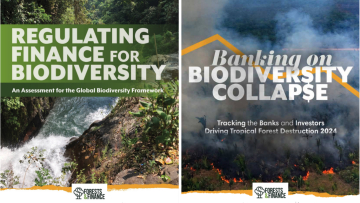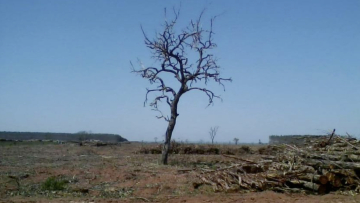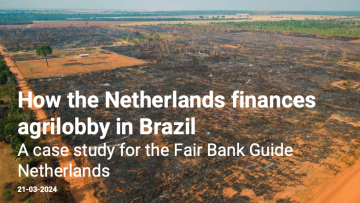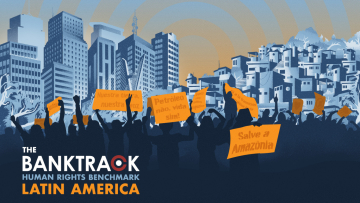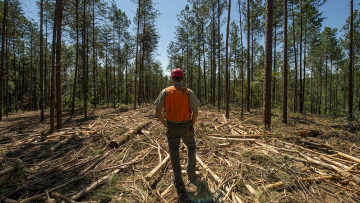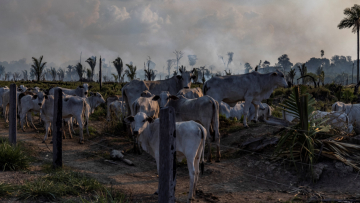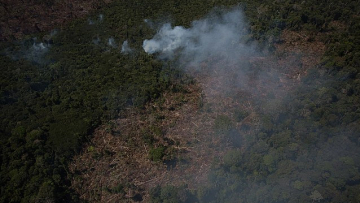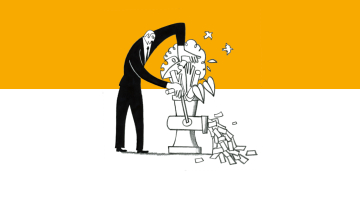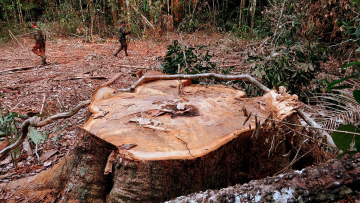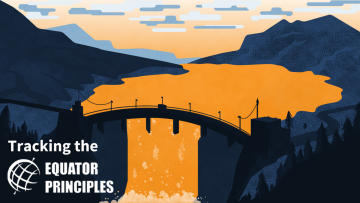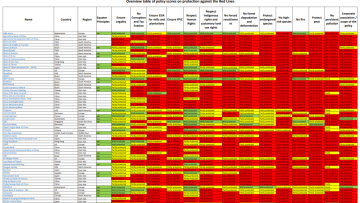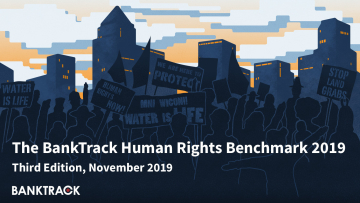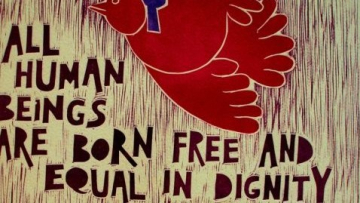Active
This profile is actively maintained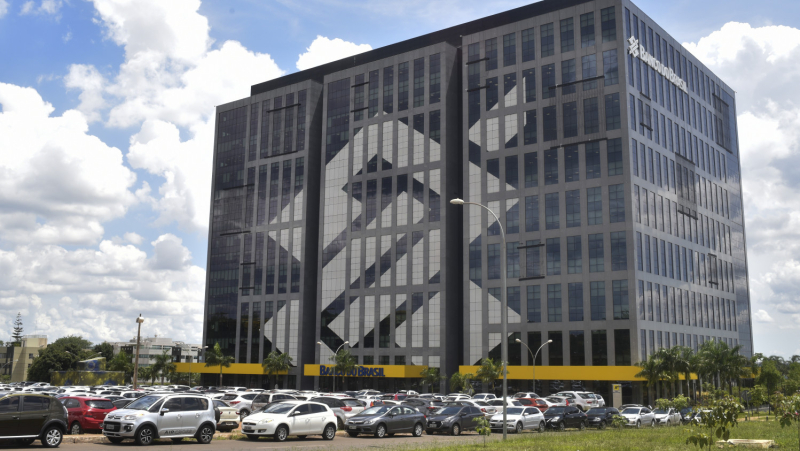
Active
This profile is actively maintained| Website | http://www.bb.com.br |
| Headquarters |
SBS Quadra 01 Bloco G ed. sede III - 24° Andar Setor Bancario Sul
70074-900 Brasilia
Brazil
|
| CEO/chair |
Tarciana Paula Gomes Medeiros CEO |
| Supervisors | |
| Ownership |
listed on Brazil Stock Exchange
The Brazilian Federal Government controls Banco do Brasil with 50.0000011% ownership of the bank's shares. The bank's complete shareholder structure can be accessed here. |
Banco do Brasil is a Brazilian bank, majority-owned by the Brazilian state. Banco do Brasil was founded in 1808 by then prince-regent João VI of Portugal to finance the kingdom's public debt when he moved from Europe to Brazil. The close relations between bank and state are reflected in the fact that the CEO is appointed by the Brazilian president. The bank offers insurance, retail banking and private equity services.
Banco do Brasil's most important sustainability commitments can be found at the website sections listed below.
Banco Do Brasil is linked to a number of companies and projects that BankTrack considers controversial (so called Dodgy Deals), e.g. as a current or past financier or through an expression of interest. The profiles below provide more details on the nature of Banco Do Brasil's link to these deals.
Banco do Brasil's has established a whistleblowing mechanism. Third parties, employees, and customers canreport concerns involving suspected misconduct or irregularities of any nature, including human rights issues.
Stakeholders may also raise complaints via the OECD National Contact Points (see OECD Watch guidance).
Banco do Brasil is an Equator Principles signatory. While the Equator Principles have no official grievance mechanism, complaints relating to this bank's financing of Equator Principles projects can be filed through our own website www.equator-complaints.org.
This page evaluates Banco do Brasil's responses to instances of alleged human rights violations linked to its finance, raised by civil society organisations. It is not intended to be exhaustive, but covers selected impacts raised by BankTrack and other civil society partners since 2016. For the full scoring methodology, see here. For more information about BankTrack's evaluation of bank responses to human rights impacts, see the 2021 report "Actions speak louder: assessing bank responses to human rights violations".
Banks and Climate
Partner organisation Reclaim Finance tracks the coal, oil and gas policies of financial institutions, including banks, in their Coal Policy Tool (CPT) and the Oil and Gas Policy Tracker (OGPT). BankTrack works closely with Reclaim Finance and endorses their policy assessments. Find further details on their assessment of Banco do Brasil’s fossil fuel policy below.
Banks and Human Rights
BankTrack assessed Banco do Brasil in its 2024 Global Human Rights Benchmark, where it achieved 5 points out of 15 and was ranked as a “follower”.
The bank scored 0 out of 3 points on the new “specific rights indicators”, which assess how banks address human rights defenders, Indigenous Peoples’ right to Free, Prior and Informed Consent and environmental rights in their policies and practices.
In addition, Banco do Brasil scored 0 out of 3 on how it responds to alleged human rights violations linked to its finance, which were raised by civil society organisations. More information is detailed in the “Accountability” section of this profile.
The table below shows BankTrack's assessment of how Banco do Brasil has implemented the UN Guiding Principles on Business and Human Rights. Please click on 'expand all details' and 'explanation' for further information on the methodology.
Our policy assessments are always a work in progress. We very much welcome any feedback, especially from banks included in the assessments. Please get in touch at humanrights@banktrack.org.
BankTrack assessed Banco do Brasil in its 2024 Human Rights Benchmark Latin America, part of the series of BankTrack's Regional Benchmarks, where it achieved 4.5 points out of 14 and was ranked as a follower.
Human Rights Benchmark Latin America 2024
Global Human Rights Benchmark 2022
Global Human Rights Benchmark 2024
Banks and Nature
Banco do Brasil's policies for forest-risk sectors (beef, soy, palm oil, pulp and paper, rubber and timber) have been assessed by the Forests & Finance coalition, achieving an overall score of 4.4 out of 10 and ranking it as a front runner. Banco do Brasil achieved a score of 4.4 out of 10 specifically for its policies related to the beef sector and 4.4 out of 10 for its policies related to the palm oil sector. In addition, BankTrack and the Environmental Paper Network have assessed Banco do Brasil's policies related to the pulp and paper sector.
Between 2016 and 2022, Banco do Brasil provided USD 81,672 million in credit to companies operating in these forest-risk sectors and held investments amounting to USD 75 million as of 2022. For more information, see the links below.
Forest & Finance Policy Assessment 2022: Overall scores
A bank can obtain a total of 10 points for the quality of its policies. The total score is based on their scores per sector, weighted against their financing and investment for each sector. For further details on this see here. Based on their overall score, banks are then classified as Laggards, Followers, Front runners or Leaders, as follows:
Forest & Finance Policy Assessment 2022: Beef
A bank can obtain a total of 10 points for the quality of its beef policy. The total score is based on their scores per sector, weighted against their financing and investment for each sector. For further details on this see here. Based on their overall score, banks are then classified as Laggards, Followers, Front runners or Leaders, as follows:
Forest & Finance Policy Assessment 2022: Palm Oil
A bank can obtain a total of 10 points for the quality of its palm oil policy. The total score is based on their scores per sector, weighted against their financing and investment for each sector. For further details on this see here. Based on their overall score, banks are then classified as Laggards, Followers, Front runners or Leaders, as follows:





